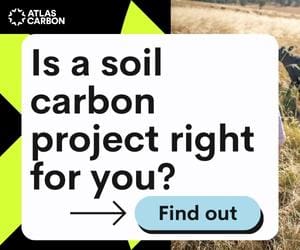A major new Cooperative Research Centre bid involving a consortium of 73 partners across industry, education and government focused on achieving net zero emissions in Australian agriculture by 2050 has been approved for funding by the Federal Government today.
The Zero Net Emissions Agricultural Cooperative Research Centre (ZNE-Ag CRC) is an initiative brokered by the University of Queensland and Queensland Department of Agriculture and Fisheries.
The ZNE-Ag CRC was one of only two successful bids from a highly contested field to receive funding approval in today’s announcement.
The collaboration includes 16 major industry groups, all six state governments and the Northern Territory, 10 universities, 3 Indigenous organisations and many SMEs and grower groups.
Thee ZNE-Ag will have a total budget of $300 million, with funding from industry, participating organisations and a Commonwealth contribution of $87 million.
A collaborative and coordinated effort involving many of the sector’s key organisations, the aim of the CRC is to “end the fragmentation in terms of research to reduce emissions”, a spokesperson explained.
The CRC will be “a national flagship project” that will develop technologies and solutions to reduce emissions in agriculture and demonstrate and validate pathways to net zero and beyond.
It is seen as direct response to feedback from industry indicating that sconfusion and lack of cohesion in efforts currently underway are the major barrier to adoption of emissions reducing tech.
 More specifically in relation to grazing cattle and sheep, a spokesperson told Beef Central and Sheep Central there are a range of opportunities including feed additives (Asparagopsis and 3-NOP, with more methane mitigating additives the topic of active research), genetic selection to reduce methane emissions, and early in life modification of rumen microbiomes to reduce emissions.
More specifically in relation to grazing cattle and sheep, a spokesperson told Beef Central and Sheep Central there are a range of opportunities including feed additives (Asparagopsis and 3-NOP, with more methane mitigating additives the topic of active research), genetic selection to reduce methane emissions, and early in life modification of rumen microbiomes to reduce emissions.
Pastures designed to reduce emissions, for example through increased production of tannins, will also play a role, as will incorporation of legumes in grazing systems.
Two challenges with all these technologies are that no single technology will reduce emissions to net zero, and the technologies will also need to improve profitability of farming systems to be adopted. Technologies will have to be combined (or “stacked”) to achieve this.
The ZNE CRC offers a unique opportunity to evaluate the impact of emissions reduction technology stacks on total emissions from farming systems, the spokesperson said.
There will be a couple of producer demonstration sites created to run the technologies at scale to evaluate on farm emissions.
“No time to waste”
Interim CEO and Queensland Alliance for Agriculture and Food Innovation (QAAFI) Director, Professor Matthew Morell said there was no time to waste.
“Reducing emissions across Australian agriculture is a significant challenge given the diversity of agricultural products we produce, the unique challenges presented by our environmental conditions, and the need for new technology to drive emissions down,” Professor Morell said.
“Time is of the essence if we are to hit our 2030 and 2050 targets.
“This commitment of industry to this CRC is particularly important, demonstrating the leadership the sector is taking in finding economically viable mechanisms to drive to a zero net emissions future.
“I’m also particularly excited to have Indigenous organisations involved, providing the opportunity to integrate Indigenous knowledge and western science in developing enduring solutions.
“We also see a tremendous opportunity to upskill industry by developing new PhD projects, bringing more students into undergraduate courses and through the vocational training sector reach as many Australians as possible.”
The ZNE-AG CRC Chair, Dr Debra Cousins, said it was gratifying to see the government support for the CRC bid.
“The national collaboration has secured $300 million in funding over 10 years, with the Federal Government’s contribution of $87 million making it the largest CRC in the program’s history,” Dr Cousins said.
“There’s an economic imperative if we want Australian agriculture to be valued at $100 billion by 2030.
“The ZNE-Ag CRC will develop technologies and solutions to reduce emissions in agriculture, mitigating risks to future investment and trade and securing the economic future of our industry.”
Professor Morell said the team expected results within the first few years.
“We’ll provide coordinated tools for industry and benchmarks to assess emissions footprints as the first part of a more coordinated and rigorous set of approaches,” he said.
“It’s fantastic to be in a position to make such meaningful change and to drive an exciting opportunity to help Australia’s agricultural future, our national and regional future and to be good citizens in the world.”


Debra,
In light of this press release you may well be interested in the research that is already being undertaken. Our partners UniSQ and ourselves have a fully funded project which will solve many of the issues around waste, WtE, & Circular Economic opportunities within the Agricultural sector.
regards Nevill
Again and again focus is placed on methane emissions by livestock and the methods to reduce those emissions by seaweed products etc, all at great cost to the producer.
Why are we not advocating the grazing methods which take carbon from the atmosphere and stores it long term in the soil ??? All at negligible cost to the producer. These methods have been proven time and time again and yet we keep going down the path of buying stuff off the shelf to solve a problem that is not really a problem
Well done Deb Cousins and team!